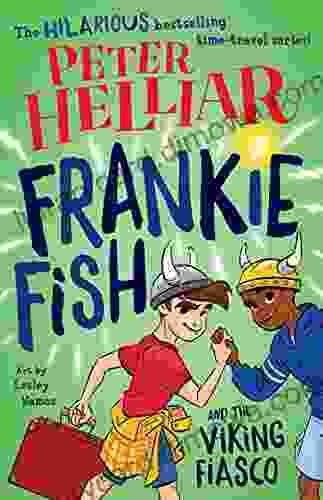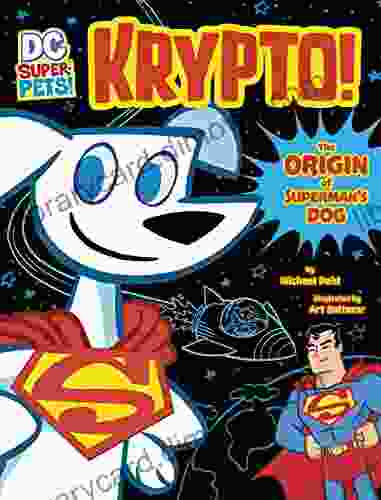Economic Reconciliation Between Indigenous Peoples and the Resource Sector

The intersection of Indigenous Peoples and the resource sector presents a complex and multifaceted challenge for economic reconciliation. Historical legacies, cultural differences, and diverging values have often led to tensions and conflicts, hindering both sustainable development and the aspirations of Indigenous communities. However, there is a growing recognition that economic reconciliation is essential for fostering harmonious relationships, protecting Indigenous rights, and unlocking the full potential of resource development.
The Historical Context
The relationship between Indigenous Peoples and the resource sector is deeply rooted in colonial history. In many countries, land dispossession, forced displacement, and environmental degradation have left a lasting legacy of mistrust and resentment. These historical injustices have also had severe economic consequences, depriving Indigenous communities of their traditional livelihoods and the benefits of modern economic growth.
4.8 out of 5
| Language | : | English |
| File size | : | 1855 KB |
| Text-to-Speech | : | Enabled |
| Screen Reader | : | Supported |
| Enhanced typesetting | : | Enabled |
| Word Wise | : | Enabled |
| Print length | : | 180 pages |
| Lending | : | Enabled |
Cultural Differences and Values
Cultural differences between Indigenous Peoples and the resource sector can further exacerbate tensions. Indigenous cultures often emphasize interconnectedness, respect for the environment, and the importance of preserving cultural heritage. These values may conflict with the dominant economic paradigm, which prioritizes profit maximization and resource extraction.
Legal and Policy Frameworks
Existing legal and policy frameworks often fail to adequately protect the rights of Indigenous Peoples in the resource sector. Weak consultation processes, inadequate compensation, and the infringement of Indigenous land rights are common challenges. This lack of legal protection can further undermine trust and prevent meaningful economic reconciliation.
Towards Economic Reconciliation
Overcoming the challenges of economic reconciliation requires a multifaceted approach that addresses both historical grievances and present-day issues. Here are some key principles that can guide this process:
1. Recognition of Rights
Indigenous Peoples have inherent rights to their lands, territories, and resources. These rights must be recognized and respected by governments, industry, and society as a whole.
2. Meaningful Consultation and Consent
Indigenous Peoples must be fully consulted and their consent obtained before any resource development projects take place on their traditional territories. This consultation must be culturally appropriate and ensure that Indigenous voices are heard and respected.
3. Equitable Benefit Sharing
Indigenous communities should share in the benefits of resource development in a fair and equitable manner. This includes revenue sharing, employment opportunities, and access to education, training, and healthcare.
4. Protection of Cultural Heritage
Indigenous cultural heritage is an integral part of their identity and well-being. Resource development must be conducted in a way that respects and preserves Indigenous cultural values, traditions, and artifacts.
5. Sustainable Development
Economic reconciliation must be grounded in principles of sustainable development. Resource extraction must adhere to strict environmental standards and minimize negative impacts on Indigenous communities and the surrounding environment.
Examples of Best Practices
Several examples of best practices demonstrate the potential for economic reconciliation between Indigenous Peoples and the resource sector. In Canada, the Impact Benefit Agreement (IBA) between the Tsilhqot'in Nation and New Gold Inc. provides a model for equitable benefit sharing and community engagement. In Australia, the Kimberley Land Council has established a successful mining exploration agreement that protects Indigenous cultural heritage and provides employment opportunities for Aboriginal people.
Economic reconciliation between Indigenous Peoples and the resource sector is a complex but essential endeavor. By addressing historical injustices, respecting cultural differences, and implementing fair and equitable policies, we can create a more harmonious and sustainable future for all. The examples presented in this article provide valuable lessons and inspiration for others seeking to bridge this divide. By working together, we can create an economy that values both Indigenous rights and sustainable development, benefiting both Indigenous communities and the resource sector as a whole.
4.8 out of 5
| Language | : | English |
| File size | : | 1855 KB |
| Text-to-Speech | : | Enabled |
| Screen Reader | : | Supported |
| Enhanced typesetting | : | Enabled |
| Word Wise | : | Enabled |
| Print length | : | 180 pages |
| Lending | : | Enabled |
Do you want to contribute by writing guest posts on this blog?
Please contact us and send us a resume of previous articles that you have written.
 Book
Book Novel
Novel Page
Page Chapter
Chapter Text
Text Story
Story Genre
Genre Reader
Reader Library
Library Paperback
Paperback E-book
E-book Magazine
Magazine Newspaper
Newspaper Paragraph
Paragraph Sentence
Sentence Bookmark
Bookmark Shelf
Shelf Glossary
Glossary Bibliography
Bibliography Foreword
Foreword Preface
Preface Synopsis
Synopsis Annotation
Annotation Footnote
Footnote Manuscript
Manuscript Scroll
Scroll Codex
Codex Tome
Tome Bestseller
Bestseller Classics
Classics Library card
Library card Narrative
Narrative Biography
Biography Autobiography
Autobiography Memoir
Memoir Reference
Reference Encyclopedia
Encyclopedia Jeff Herring
Jeff Herring Stephanie Sims
Stephanie Sims Ann B Ross
Ann B Ross Anna Marie Mclemore
Anna Marie Mclemore Anita Daher
Anita Daher Arthur Rackham
Arthur Rackham L S Murphy
L S Murphy Stephanie Curry
Stephanie Curry Paul French
Paul French Ilsa J Bick
Ilsa J Bick Anna Digilio
Anna Digilio Dahlia Adler
Dahlia Adler Kjell Prytz
Kjell Prytz Clive Woodward
Clive Woodward Hadley James
Hadley James Anh Do
Anh Do Anna Sewell
Anna Sewell Anna Elizabeth Judd
Anna Elizabeth Judd Svetlana Chmakova
Svetlana Chmakova Ar Corbin
Ar Corbin
Light bulbAdvertise smarter! Our strategic ad space ensures maximum exposure. Reserve your spot today!

 Cormac McCarthyStart to Finish for Tablet Devices: Fueling the Future of Mobile Innovation
Cormac McCarthyStart to Finish for Tablet Devices: Fueling the Future of Mobile Innovation Theodore MitchellFollow ·9.7k
Theodore MitchellFollow ·9.7k Don ColemanFollow ·13.6k
Don ColemanFollow ·13.6k Jules VerneFollow ·16.9k
Jules VerneFollow ·16.9k Brent FosterFollow ·9.4k
Brent FosterFollow ·9.4k Denzel HayesFollow ·19.5k
Denzel HayesFollow ·19.5k Ernest HemingwayFollow ·14.1k
Ernest HemingwayFollow ·14.1k Bo CoxFollow ·11k
Bo CoxFollow ·11k Donovan CarterFollow ·19.1k
Donovan CarterFollow ·19.1k

 Anton Chekhov
Anton ChekhovMother Goose The Old Nursery Rhymes Illustrated By Arthur...
A Journey Through the Enchanted Gardens of...

 Alexander Blair
Alexander BlairUnleash the Power of Imagination: Exploring the...
A Literary...

 Harry Hayes
Harry Hayes50 Quick and Easy Ways to Become Brilliant at Project...
Project stakeholder...

 Gus Hayes
Gus HayesSimple Practical Tips To Understand The Basics Of...
: The Looming Threat of...

 Connor Mitchell
Connor MitchellUnleash Your Literary Superpowers: Immerse Yourself in...
Welcome to a Captivating Universe of...
4.8 out of 5
| Language | : | English |
| File size | : | 1855 KB |
| Text-to-Speech | : | Enabled |
| Screen Reader | : | Supported |
| Enhanced typesetting | : | Enabled |
| Word Wise | : | Enabled |
| Print length | : | 180 pages |
| Lending | : | Enabled |












